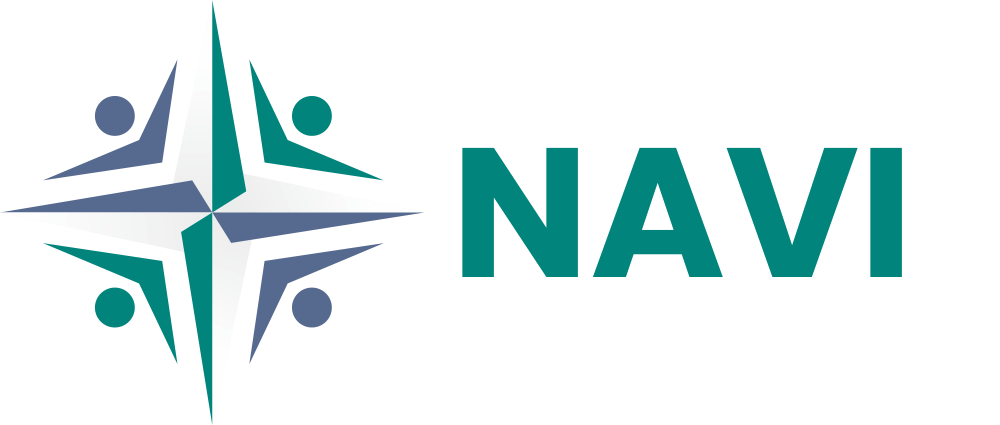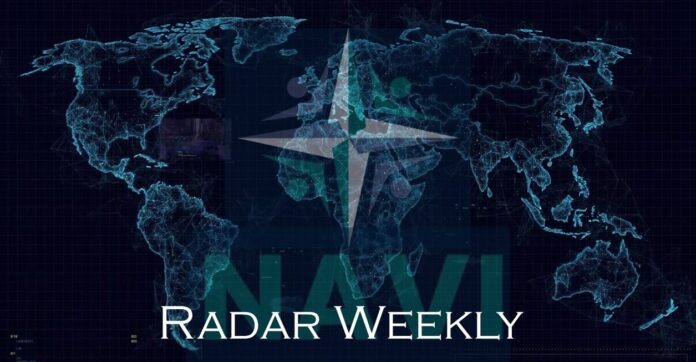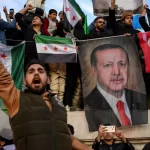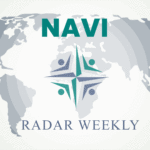Focus Point: Regional Security- NATO
NATO Secretary General in Washington: Supporting Ukraine serves US interests by NATO
29.01.2024 At a joint press conference with the US Secretary of State Antony Blinken on Monday (29 January 2024), Secretary General Jens Stoltenberg commended President Biden and Secretary Blinken for their clear commitment to sustain US support to Ukraine.
“A Russian victory would embolden Iran, North Korea and China. That matters for Europe’s security and it matters for America’s security. So supporting Ukraine serves U.S. interests,” Mr Stoltenberg said. The Secretary General stressed that “for a tiny fraction of annual defence spending, the United States has helped Ukraine destroy a major part of Russia’s combat capacity, without placing a single American soldier in harm’s way.” He also thanked Secretary Blinken for his personal commitment to NATO.
Joint press conference by NATO Secretary General Jens Stoltenberg and the US Secretary of State, Antony Blinken NATO
Focus Point: Security and Defense Policy- Anti-Corruption
Corruption Perceptions Index by Transparency International
30.01.2024 Time to end impunity for corruption
The 2023 Corruption Perceptions Index (CPI) shows that corruption is thriving across the world. The CPI ranks 180 countries and territories around the globe by their perceived levels of public sector corruption, scoring on a scale of 0 (highly corrupt) to 100 (very clean).
Over two-thirds of countries score below 50 out of 100, which strongly indicates that they have serious corruption problems. The global average is stuck at only 43, while the vast majority of countries have made no progress or declined in the last decade. What is more, 23 countries fell to their lowest scores to date this year.
Injustice and trouble at the top
The global trend of weakening justice systems is reducing accountability for public officials, which allows corruption to thrive.
Both authoritarian and democratic leaders are undermining justice. This is increasing impunity for corruption, and even encouraging it by eliminating consequences for criminals. Corrupt acts like bribery and abuse of power are also infiltrating many courts and other justice institutions across the globe. Where corruption is the norm, vulnerable people have restricted access to justice while the rich and powerful capture whole justice systems, at the expense of the common good.
Countries ranking high on the CPI have an impunity problem of their own, even if this isn’t reflected in their scores. Many cross-border corruption cases have involved companies from top-scoring countries that resort to bribery when doing business abroad. Others have implicated professionals who sell secrecy or otherwise enable foreign corrupt officials. And yet, top-scoring countries often fail to go after perpetrators of transnational corruption and their enablers. Transparency International
Focus Point: Regional Security- NATO
Secretary General in Florida: NATO makes the United States stronger and more secure by NATO
31.01.2024 NATO Secretary General Jens Stoltenberg concluded his trip to the United States on Thursday (1 February 2024) with a visit to the headquarters of the US Special Operations Command (SOCOM) in Tampa, Florida. Addressing troops, Mr Stoltenberg underscored that in a changing world with serious challenges, NATO Allies stand united “around our core cause to protect and defend each other.”
Mr Stoltenberg highlighted that Allies’ increased defence spending will not only result in boosting national capabilities, but will also facilitate more cooperation in NATO. Pointing to the increasingly global nature of security threats and challenges, the Secretary General stressed “NATO is responding because we need to do that together.” He underlined that together, NATO Allies make up half the world’s economic and military might, adding: “NATO is a good deal for all Allies… NATO is a good deal for the United States.”
On Monday, the Secretary General had discussions with senior U.S. officials, and at a press conference with Secretary of State Antony Blinken, he stressed that “for a tiny fraction of annual defence spending, the United States has helped Ukraine destroy a major part of Russia’s combat capacity, without placing a single American soldier in harm’s way.” He also met with Secretary of Defense Lloyd J. Austin III and National Security Advisor Jake Sullivan to discuss continuing the strong support for Ukraine, as well as preparations for NATO’s Summit in Washington this July. NATO
Focus Point: Security and Defense Policy- Russia-Ukraine War
EU leaders approve €50 billion deal for Ukraine after Viktor Orbán lifts his veto by euronews
01.02.2024 European Union leaders reached on Thursday morning a deal to establish a €50-billion plan for Ukraine after Viktor Orbán lifted his veto.
The decision was taken surprisingly fast at the beginning of an extraordinary summit in Brussels, where financial aid for Kyiv was at the very top of the agenda.
The special fund, known as the Ukraine Facility, combines €33 billion in loans and €17 billion in grants and will be gradually disbursed between 2024 and 2027. Payments will be conditional on the completion of structural reforms related to public administration, good governance, the rule of law and the fight against corruption and fraud.
The Facility was green-lighted as part of a €64.6-billion review of the bloc’s common budget. New top-ups have been added to the area of migration and border control (€9.6 billion), cutting-edge technologies (€1.5 billion), emergency assistance (€1.5 billion) and a flexibility instrument to react to unforeseen crises (€2 billion).
The agreement on the Ukraine Facility is not yet final: the Council and the European Parliament still have to negotiate the legal text, a process expected to be fast-tracked due to the growing urgency of sending fresh money to Kyiv.
The first round of talks is scheduled to take place on Monday in Strasbourg.
Although the €50 billion earmarked for the 2024-2027 period averages €12.5 billion per year, the envelope is not “rigid” and will not be “evenly distributed,” said von der Leyen. Instead, the cash will be adapted “as it is needed and best allocated.”
Last year, the EU provided Ukraine with €18 billion in macro-financial support. euronews
Focus Point: Security and Defense Policy- Russia-Ukraine
Experts react: The EU just approved a 50 billion euro aid package for Ukraine. How will it impact the war? by Atlantic Council
01.02.2024 “We have a deal,” European Council President Charles Michel announced on Thursday. Then, to underscore the inclusivity of that first-person plural pronoun, he added that all twenty-seven European Union (EU) countries had agreed on a fifty-billion-euro aid package to Ukraine through 2027. The breakthrough follows weeks of resistance from Hungarian Prime Minister Viktor Orbán. It also comes as the two-year mark of Russia’s full-scale invasion of Ukraine draws near and as prospects look increasingly bleak in the US Congress for additional aid to Kyiv. To better understand what the decision in Brussels means there and beyond, we asked Atlantic Council experts to share their insights below.
Click to jump to an expert analysis:
Jörn Fleck: The agreement cements the EU as Ukraine’s leading supporter
Daniel Fried: The EU acted just in time. Now, the US should follow its example.
Shelby Magid: The EU agreement flies in the face of narratives about ‘Ukraine fatigue’
Rachel Rizzo: An example of how appropriate pressure by major EU countries can seal the deal
James Batchik: A strong signal that Europe can act in its own interests
Focus Point: Security and Defense Policy- Russia-Ukraine
Russia Tomorrow: Five scenarios for Russia’s future by Atlantic Council
02.02.2024 Imagine Russia in 2030. Will it resemble today’s imperial kleptocracy? Will it be a Western-style democracy? Will the Russian Federation exist at all? As Russia’s unprovoked invasion of Ukraine continues, the questions of what comes next have never been more pertinent. However, while questions of future developments in Ukraine continue to dominate discourse in places like Washington and Brussels, far less attention has been paid to what comes next in Moscow, and across the Russian Federation. Indeed, the discussion of developments within—and policy surrounding—Russia’s potential future has been largely muted across the West. Even after former militia head Yevgeny Prigozhin’s failed 2023 putsch, serious discussion regarding potential Russian futures remained largely subdued.
But given the magnitude and fallout of Russia’s invasion, to say nothing of the ongoing threats that a revanchist Kremlin poses to the West and its allies elsewhere, this lack of discussion surrounding Russia’s potential future is increasingly inexcusable. As such, this essay will seek to rectify that inadequate oversight in the broader policy conversations about Russia’s path forward.
Briefly, the five scenarios detailed below include:
- Putin’s continued rule
- Putin’s ouster, followed by the installation of a far-right, nationalistic figure or cadre
- Putin’s ouster, followed by a technocratic, if still largely antidemocratic, regime
- Putin’s ouster, followed by the rise of a liberal, thoroughly pro-Western government
- Russian Federation state fracture Atlantic Council
Focus Point: Emerging Technologies and Data- Artificial Intelligence
EU countries give crucial nod to first-of-a-kind Artificial Intelligence law by Euractiv
02.02.2024 The ambassadors of the 27 countries of the European Union unanimously approved the world’s first comprehensive rulebook for Artificial Intelligence, rubber-stamping the political agreement reached in December.
In December, EU policymakers reached a political agreement on the main sticking points of the AI Act, a flagship bill to regulate Artificial Intelligence based on its capacity to cause harm. The complexity of the law meant its technical refinement took more than one month.
On 24 January, the Belgian presidency of the Council of EU Ministers presented the final version of the text, leaked in an exclusive by Euractiv, at a technical meeting. Most member states maintained reservations at the time as they did not have enough time to analyse the text comprehensively.
These reservations were finally lifted with the adoption of the AI Act from the Committee of Permanent Representatives on Friday (2 February). However, the green light from EU ambassadors was not guaranteed since some European heavyweights resisted parts of the provisional deal until the very last days. Euractiv
Focus Point: Security and Defense Policy- The EU
EU’s courtship of Indo-Pacific gets cold shoulder from big Powers by Politico
04.02.2024 Brussels struggles to get the A list to its big meeting, while developing countries flag EU’s double standards between confronting Russia and Israel
Europe planned to get dozens of Indo-Pacific foreign ministers to Brussels for talks on Friday, with the EU eager to prove its relevance in a region increasingly under pressure from an assertive China.
In the end, the EU couldn’t even attract ministers from its own influential countries.
France’s new Foreign Minister Stéphane Séjourné and Germany’s Annalena Baerbock were missing from the EU’s third Indo-Pacific ministerial meeting, citing scheduling clashes. Italy’s Antonio Tajani also skipped the Indo-Pacific part, and joined only an afternoon session with Southeast Asian countries.
The EU also felt the absence of four of the West’s closest allies in the Indo-Pacific.
Japanese Foreign Minister Yōko Kamikawa, Australia’s Penny Wong, Subrahmanyam Jaishankar of India, and new South Korean minister Cho Tae-yul all skipped the meeting. Lower-level officials took their places.
The other notable absentees were China and the United States.
While Beijing has never been on the guest list, the U.S. was invited to the Stockholm meeting last year, with U.S. State Department Counselor Derek Chollet attending. Politico
Thank you very much for reading.
The NAVI Research Institute is the research division of NATO Veterans Initiative - NAVI that provides a unique perspective to transatlantic leaders and societies on peace and security through the lens of NATO's founding principles of rule of law, democracy, human rights, and individual liberties. The NAVI Research Institute was officially established by the NAVI Board on July 16th, 2023.



